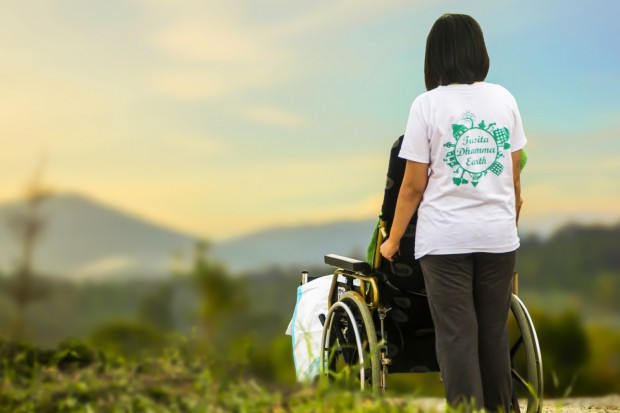
(Photo : truthseeker from Pixabay)
Think about nursing homes for a moment, review the kind of image that comes to mind. If you're like most people, what will come to mind will be some sort of dystopian hellscape out of a modern psychological horror novel: clean, white, pristine halls that hide a variety of misdeeds, smiling nursing staff that turn into psychopaths when night falls, and more images from pop culture's often horrifying picture of nursing homes. Or maybe you'll just imagine a place where most of the residents are sad, wasting away quietly, the other popular pop-cultural interpretation of what nursing homes are and do.
These horror stories are just that: horror stories, fictions drawn up by people who are afraid of the prospect of having to be taken care of at nursing homes, people scared of their own diminishing capacity, and the steady, cruel march of time. Most nursing homes are, in fact, facilities that endeavor to take the best possible care of their patients, equipped with amenities that make life easier for their charges and staff that delight in seeing patients improve.
However, this interpretation of nursing homes did not spring up out of nowhere: nursing homes, like every other communal care setting for the elderly, can be a hotspot for all kinds of abuse to fester and grow in the shadows. With cases of elder abuse still being underreported (as other kinds of abuse also tend to be), what has been reported is still shocking, as roughly 1 in 6 older adults experience elder abuse in community care settings, according to the World Health Organization. Many of the culprits are staff in nursing homes, with the same organization finding 2 out of 3 nursing home staff confessed to committing a form of abuse: that can make the decision to send your older adult to a nursing home, sometimes necessary but always complicated, even more frightful.
Unfortunately, there's no way to accurately screen for elder abuse, as much of it happens in the shadows: the only way to catch it is if you see any of the signs cropping up consistently. So for your edification, here are some of the most common signs of elder abuse: if you see any of these, pull your older adult out of that environment and contact a qualified legal professional immediately.
Unfriendly Nursing Staff
Everyone has bad days, especially people in a high-stress position like most nursing staff, and few of us want to be judged on those worst days: nursing staff are frequently overworked and sleep-deprived, and that may naturally manifest in a snappy tone or an unkind word now and then. But if you notice a pattern starting to emerge of a particular staff member treating patients like garbage when you're around, you might want to question what they're like when you aren't around.
Another good indicator would be how your older adult tends to respond to particular staff members. If, after spending a fair amount of time at the nursing home, your older adult seems to have a powerful dislike for a particular staff member or even seems afraid or anxious when their name is mentioned, they may be trying to tell you who their abuser is. Don't be afraid to ask tough questions if you notice a certain irrational-seeming anger on their part towards a particular staff member.
Unhealthy Habits Developing
Part of the nursing home's responsibility to your older adult is to make sure that healthy eating, sleeping, and socializing habits are maintained: therefore, if you notice that your older adult hasn't been eating or is eating unhealthy foods, isn't getting enough sleep, or hasn't gone out to see anyone in a while, they may be suffering from elder neglect. In short, if their habits seem to be warping into something unhealthy for them, you might want to ask questions about the home's schedule for them. Other common signs of neglect are bedsores (as that would mean your older adult has been stuck in bed for a long time) and declining hygiene.
Unexplainable Bruises
This probably goes without saying, but there's only so many accidents an older adult can have before things start to get unreasonable. If you notice that your older adult seems to be suffering repeated injuries (whether they're different in nature or similar, as reported by the institution), you may want to pull them out; chances are, that fall that your parent took was not an accident, and it's better to be safe than sorry.
If, after reading this, you don't want to take your older adult to a nursing home, nobody could blame you: but it might comfort you to know that (if a nursing home is your only option) there are groups out there dedicated to stamping out the problem of elder abuse, watching nursing homes and fighting for those who have been hurt. You aren't alone, and neither is your older adult: with the right support network and the phone number of an attorney in your pocket (just in case), their safety is a foregone conclusion.
- Contribute to this Story:
- Send us a tip
- Send us a photo or video
- Suggest a correction
* This is a contributed article and this content does not necessarily represent the views of latinospost.com




































